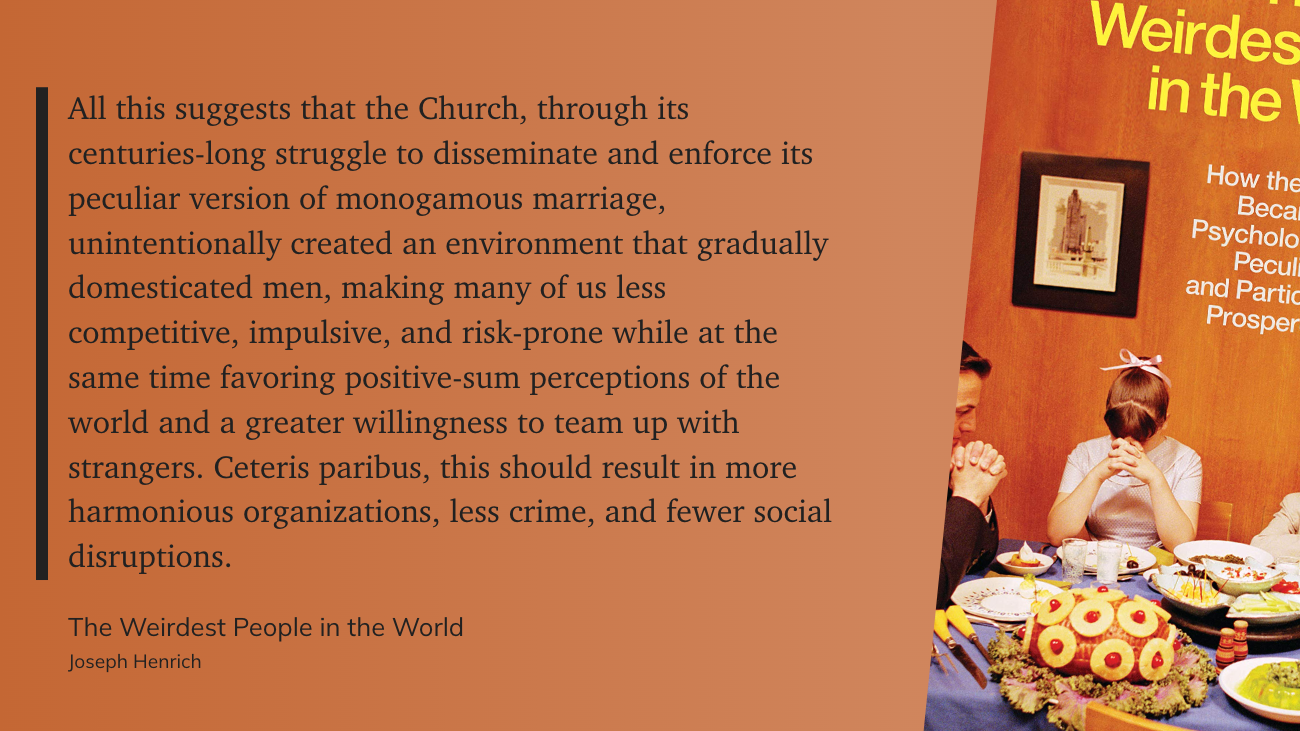Benefits of WEIRD Marriage
Dr. Joseph Henrich is an anthropologist who teaches at Harvard. I am reading a book of his about WEIRD people; that is Western, Educated, Industrialized, Rich, and Democratic people. For years scientists did their experiments on mostly WEIRD populations and came to conclusions they assumed were true for all of humanity. We now know that WEIRD people are actually a bit weird, and don’t represent the rest of the world in many important ways.
In this book, Henrich explains how the WEIRD roots arose and changed us in ‘the west’ (and later elsewhere as western ideas came to dominate many parts of the world, like in Japan for instance). A huge factor was the Christian Church and its policies. For one, the Church enforced and changed how Europeans thought of marriage. Specifically, the Church established monogamy as the norm and outlawed previously widespread types of marriage such as cousin marriage and polygyny. In societies that allow polygyny, high status men wind up with multiple wives, even harems. However, it also had the effect of making it hard for many low status men in society to find mates.
The quote noted below gets at one of the major positives of this change. Men without wives, Henrich demonstrates, tend to have more testosterone in their systems more often, changing their behavior in many antisocial ways. The flip side is that once men are married, testosterone tends to diminish, leading to generally more caring and mellow dudes. In other words, the rise of monogamy in Europe led, in part, to less less sexual violence, less crime in general, and more trust by men of other men.
This historic development makes me reflect on how many other “givens” in our culture might be the result of centuries-old institutions shaping behavior in ways we hardly notice. If something as personal as marriage norms can be engineered—and can ripple out to influence crime rates, trust, and cooperation—then what other aspects of our daily lives are quietly products of history rather than universal human nature? Even though I remain deeply skeptical of organized religion, I can see how this particular historical turn produced social benefits we still feel today. It’s a reminder that traditions are not simply inherited. Rather, they are crafted, sometimes intentionally, sometimes by accident, and always worth re-examining.
